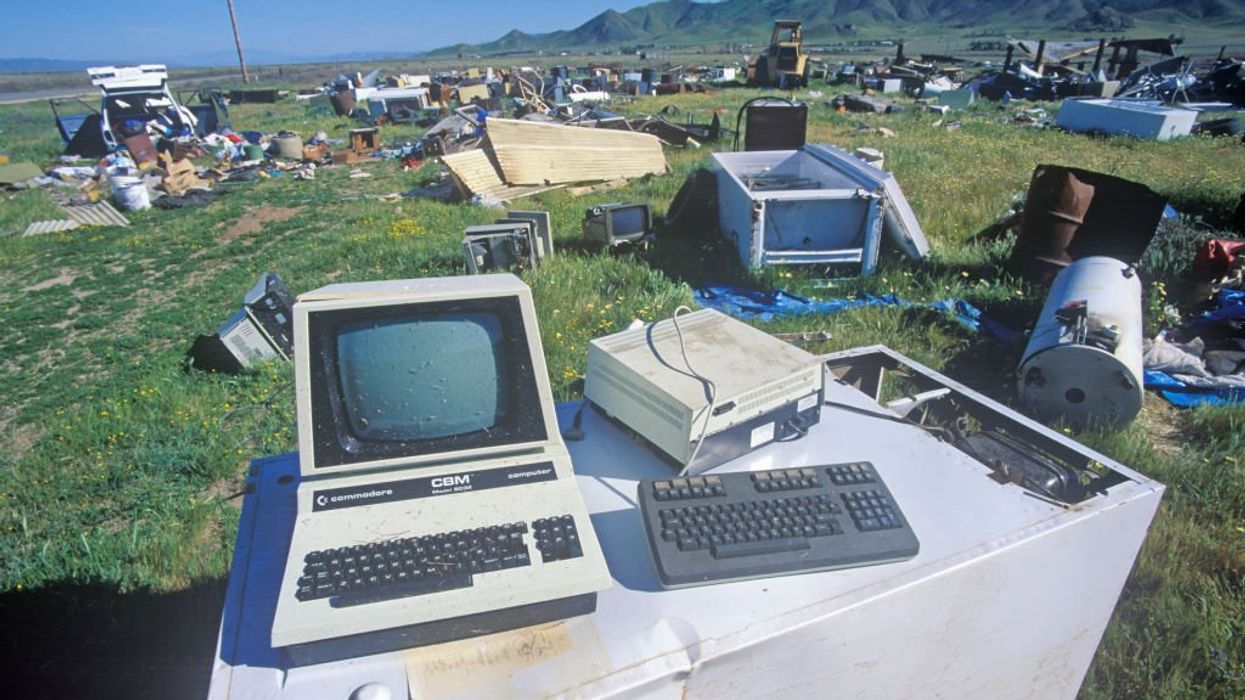
Joe Sohm/Visions of America/Getty

Six states and counting secure your right to fix your own stuff.
Big tech doesn’t want you to fix your property. It would seem to prefer a slow creep into expansive, endless control through an ongoing, multi-pronged program of planned obsolescence. And in many places, the law is on its side.
But now, a movement aimed at building bulwarks against this slide into servitude has recently gained valuable ground and momentum in the tech-heavy Pacific Northwest.
This overarching problem of centralized power creeping deeper into absolute ownership and control — we are merely renters, actually slaves to the production of yet more technology — needs to be addressed in the strongest, smartest possible terms.
In Oregon, legislators have joined the so-called Right to Repair movement. The label refers to the straightforward and rather American notion that we can simply do with our property what we wish — repair, modify, augment, etc. Right to repair advocates seek to force manufacturers of everyday appliances and electronics to provide the tools and technical know-how to maintain, troubleshoot, and repair their products. Five states thus far have enacted legislation similar to the new Oregon law.
As daily life shows us all too well, the creeping, inbuilt obsolescence of consumer products, forcing the buyer to comply in ways he or she is unlikely to ever foresee, is planned out well in advance. Who among us isn’t familiar with the experience of coming to realize that the printer cartridges — paid out over a few months of moderate use — quickly wind up costing more than the printer? Not coincidental, of course. Or, recall that first time hearing the sentence “your phone is due for an upgrade.” Or, we might ask, how many iterations of phone charger or power cord (which require the purchase of a suite of accessories) are necessary to achieve some acceptable level of functionality?
With electronics, the forced need to upgrade is often triggered with minor changes to the software or through the installation of access-resistant components — obstacles that not even specialized repairmen can overcome. The trend isn’t restricted to digital technology, either. The scheme is further ensured by building repair-resistant features into those components such that replacement parts will only function if matched to that exact serialized phone, computer, vehicle, or tractor.
The efforts by corporations to hold on to their products even after consumers have purchased them have already remodeled various segments of the economy. John Deere, to take one monstrous example, has held American farmers over the proverbial barrel for years insisting that when repairs on tractors are necessary — even in the middle of a critical harvest or planting seasons — they turn only to a few specialized repair outfits that are equipped with the necessary proprietary diagnostic and access tools.
Litigation against John Deere by farmers in the heartland is ongoing.
A few major tech firms have begun to waver in the face of mounting opposition. Tech giants Apple and Google have signaled support for laws in Oregon and California, states where pressures from environmental advocacy groups are, to some degree, taken seriously.
In fact, the only notable kickback against the premises of the Right to Repair movement feels tepid. Those fighting against Right to Repair claim that allowing customers to repair their electronics subjects them to higher levels of data insecurity. Maybe. In Oregon, the legislation seems to have passed on consumer advocate sentiment and the promise that the refurbishment of electronics and appliances would inevitably lead to less manufacturing, transport, and related environmental impact.
Oregon’s new law actually goes farther than similar laws passed in other states. It addresses an aspect of the obsolescence issue termed “parts pairing," which is the practice of using software to mandate the use of specified (read: controlled, metered, profitable) parts in repair or modification.
Say an auto manufacturer wishes to increase its hold on a product. One way to achieve this with existing technology might be to tag a tire or a side mirror with an RF chip and write some software such that the vehicle's operation becomes impossible without the proper (read: payable to the manufacturer or manufacturer’s client) replacement component.
Control concentrates ever more under such a scheme.
What happens if the conglomerate is also financially or otherwise associated with social credit-type programs? It is feasible at this point, given enough desire or incentive, that a “social demerit” could not only restrict your bank account but even access to necessary components of various owned property. How do you plow the field or deliver that refrigerated produce then?
This overarching problem of centralized power creeping deeper into absolute ownership and control — we are merely renters, actually slaves to the production of yet more technology — needs to be addressed in the strongest, smartest possible terms. The right to repair seems to be a piece. Long-term, the alternative is clear: a nightmarishly inescapable Internet of Things where compliance with corporate and government dictates is the condition of use for every appliance, meter, and thermostat — each connected to a central AI for management and functioning.
Andrew Edwards